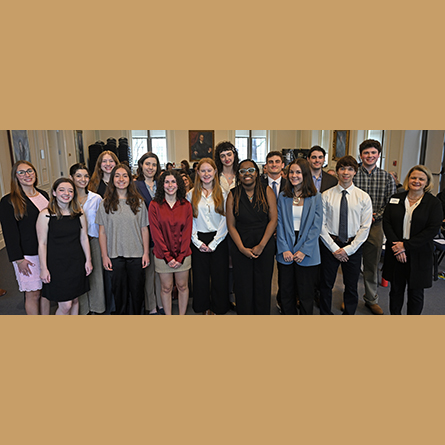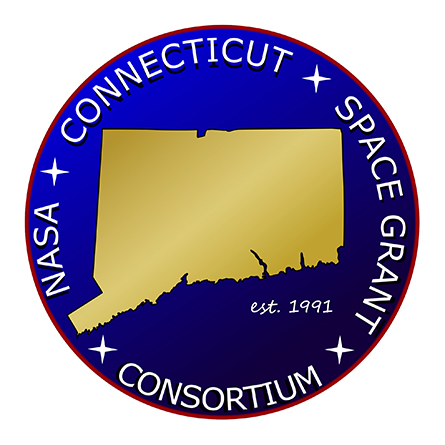
Conn joins Connecticut Space Grant Consortium
Connecticut College is now part of the Connecticut Space Grant Consortium, a NASA-funded program administered at the state level that sponsors faculty and student research and student internships across the U.S.
Affiliated institutions include four-year colleges and universities, community colleges, science centers, institutes and museums. In Connecticut, the University of Hartford administers grants as the state’s lead institution for the program. The addition of Conn this year brings the total members of post-secondary institutions in the state to 27.
Assistant Teaching Professor of Astronomy Alex Gianninas, who serves as Conn’s campus director for the program, said he first learned of it while teaching at the University of Hartford. When a Conn student sought funding last fall to attend a conference in Hawaii, Gianninas looked into the Space Grant. He learned only students and faculty at member institutions could apply, and Conn wasn’t a member.
Gianninas approached the offices of Advancement and the Dean of the Faculty at Conn and got the green light to pursue membership. After lots of paperwork and a vote of the current member institutions, Conn was accepted. Senior Associate Director of Corporate Foundation and Government Relations Matthew Reutter was key to helping secure Conn’s place, Gianninas said.
There are three funding proposal cycles per year in fall, spring and summer, and the current cycle of funding runs through Oct. 15. Proposals must link to one of NASA’s six National Mission Directorates, which are Aeronautics Research, Exploration Systems Development, Science, Space Operations, Space Technology, and Mission Support.
Despite the program’s name, proposals need not be related to space. Conn’s proposals will most likely fall under the Science Mission Directorate, Gianninas said. “They mean ‘science’ in the broadest sense, so that could be physics, astronomy, math, biology, botany, psychology, neuroscience—anything that falls under the large umbrella of STEM can be applicable here. Working on something specifically related to space or space exploration is not necessary to apply.”
He added that first-time applicants are favored, and multiple applications from one institution are common and welcome. “That puts everyone at Conn in a good position, because we’re just joining the consortium. There’s no pre-selection at the College, so if 10 people at Conn each wanted to submit a proposal, they would all be considered separately on their own merits. Last spring, eight proposals from Fairfield University received funding.”
There are a total of 42 awards open to faculty and students in Connecticut. For faculty, nine research grants for up to $10,000 each are available, four project grants of up to $5,000 each can fund supplies and materials, four $2,000 travel grants can fund trips to conferences, two $4,000 grants are aimed at STEM education research, two $2,000 grants are for STEM education programming and three grants for up to $4,000 each are slated for curricular development.
For Connecticut students, five research grants for up to $6,000 each are intended to support undergrad research with a faculty adviser; three $1,500 project grants for materials could be applied to a student’s capstone project, senior thesis or extracurricular club; four $1,500 travel grants can help send students to conferences and six $3,000 scholarships are awarded based on academic merit.
Students are also eligible for funding for a range of full-time 10-week summer internships at Connecticut-based industries or organizations that focus on engineering, aerospace, architecture, STEM education, pharmaceuticals or astronomy. Unlike the grant proposals, which have three open cycles during the year, internship applications are accepted on a rolling basis.
Connecticut students who win a grant must present a poster illustrating how they applied their award at the annual Fall Grants Expo at the New England Air Museum in Windsor Locks.
As the campus director, Gianninas is Conn’s point person on all things related to the Connecticut Space Grant Consortium. He will inform students and faculty of opportunities during each proposal cycle and reviews proposals with other campus directors (who do not review proposals from their own schools). He held an information session for faculty and staff on Sept. 20 and said he plans to hold another in January before the semester starts.

